Bhavya Aggarwal | 7th September 2025
Over the last decade, the Korean wave or Hallyu, has swept through India with a remarkable force. Young Indians are interacting with Korean culture in ways that go well beyond simple consumption, from the emotional pull of K-dramas to the catchy beats of K-pop, and from the success of Korean skincare products worldwide to the rising demand for Korean food. While many people simply see South Korea on their screens, others want to connect on a deeper level by learning about the intellectual, social, and cultural background of the content they enjoy. One such individual is Divyanshi Gaur, a cultural journalist who during her undergraduate years, participated in a one-week cultural exchange program and visited South Korea. Her journey reflects how even a short immersion in another culture can create lasting impressions and reshape perspectives. It is through voices like hers that we see how cultural exchanges build bridges between nations.
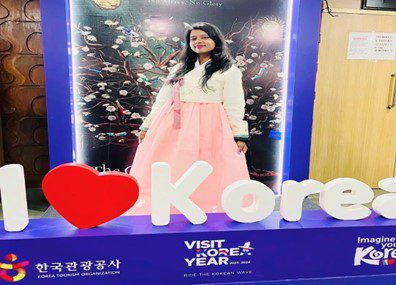
A Journey Rooted in Education and Curiosity
Having completed her Master’s degree in Communication and Journalism from the University of Mumbai, Divyanshi focused her research on how media shapes cultural identity and public perception. Within this broad field, Korean media emerged as a striking case study. “During my studies, I became particularly interested in the influence of Korean media on Indian youth like how K-drama, K-pop and other digital content are shaping language learning and cultural outlooks” she said.
Her work was not limited only to theoretical research. She actively engaged with cultural journalism, writing articles, conducting interviews with media professionals, and participating in events that promoted India-South Korea cultural exchange. One of her notable experiences was teaching English to Korean students under the Education Ministry of Korea, which gave her a firsthand glimpse into Korean classrooms and student life. “Experiencing this intersection of research, journalism, and practice sparked my deeper curiosity” she reflects. This curiosity eventually shaped her decision to pursue a doctorate in South Korea, where she hopes to merge academic study with lived cultural experience.
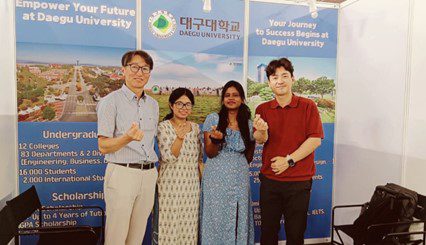
More Than Academics: The Pull of Culture
For Divyanshi, this pull towards South Korea was never just academic. It was also personal. “I’ve always loved exploring different cultures, and Korea felt like the perfect intersection of my academic interest and personal passion” she shared. The way South Korea combines modernity and tradition, especially in its media storytelling, intrigued her. K-dramas and K-pop are cultural tales that transcend national boundaries and speak to millions of young people; they are more than just entertainment.
Another driving force in academia was South Korea’s prowess in media and communication studies, particularly in the areas of digital media, youth participation, and transnational cultural flows. “Going to Korea is not just about studying media. It’s about engaging directly with the culture that produces it, observing daily life, and understanding the societal context behind the media I research” she said.
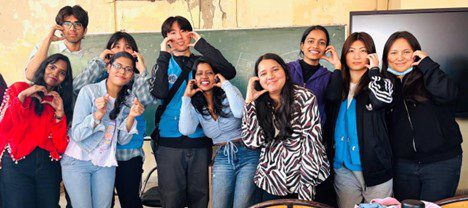
The First Spark
The initial spark for her interest came not from books or classrooms, but from observing her peers in India. “I noticed my friends learning the Korean language from K-dramas, adopting fashion trends from K-pop, and engaging with the values portrayed in Korean shows. It was fascinating to see a culture so geographically distant become so relatable and impactful” she explained.
What began as casual observation soon evolved into structured research. She started analyzing cultural narratives, digital platforms, and representations that facilitated this cultural exchange. Gradually, her curiosity expanded from the Indian context to a desire to see the country firsthand and to be able to move beyond theory and media portrayals.
A Week in Korea: Beyond the Stereotypes
Although her trip to Korea was brief, lasting only a week, it left a profound impression. Before the visit, her knowledge of Korea was limited to general perceptions about its culture and popular media. But the experience transformed her perspective. “I experienced how traditional culture and modern ways coexist not as opposing forces, but as complementary parts of everyday life, especially outside Seoul.” she shared.
She was struck by the way respect and community are embedded in daily interactions, regardless of age, while innovation and creativity thrive in cities like Busan and Daegu. Simply walking the streets, observing people, and interacting with locals provided insights no textbook or drama could capture. “It opened my eyes to the depth and richness of Korean society and showed me the importance of experiencing a culture directly to truly understand it.” she said.
Why Indian Youth Connect with Korea
Her observations also shed light on why Korean culture resonates so strongly with young Indians. “In my personal opinion, Korean culture resonates strongly because it combines both emotional relatability and aspirational appeal” she explained.
K-dramas and K-pop, on one hand, examine universal topics that are genuine and emotionally accessible, such as friendship, family, love, ambition, and personal development. On the other hand, Korean media’s professional appearance, global perspective, and contemporary way of life encourage ambition and inventiveness. “Young people admire the innovation and forward-looking mindset in Korean media, which encourages them to explore their own aspirations” she added.
She contends that accessibility is another important consideration. Young Indians can engage with Korean content through fan communities, language lessons, and even the creation of their own interpretations thanks to digital channels. “This combination of emotional connection and interactivity is why Korean culture has become such a powerful soft influence on Indian youth today” she noted.
Beyond Screens: The Value of Immersion
Her biggest takeaway from visiting Korea can be summed up in one line: “True cultural understanding comes from immersion like living, observing, and participating in everyday activities, because only then can you see the real dynamics behind the media and culture.”
This reflection resonates strongly in the Indian context. For many young Indians, Korean culture is still experienced primarily through media. But as her story illustrates, even short periods of immersion can transform that understanding. They reveal the lived realities behind the glossy images, and they deepen the appreciation of cultural values like respect, community, and creativity.
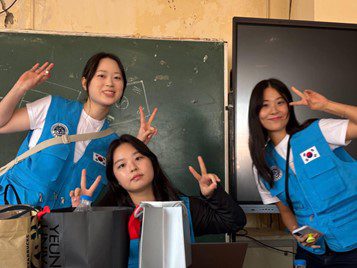
A Bridge Between Cultures
Divyanshi’s story is not just about one student’s journey. It’s about how cross-cultural interactions are getting more intimate and linked. Her academic research, professional engagement, and short trip to South Korea all reflect a growing trend: Indian youth are no longer passive consumers of global culture. They are active participants, interpreting, reshaping, and even contributing to cross-cultural dialogues.
As she prepares for her doctoral studies in South Korea, she hopes to build on this bridge between both the countries through research, journalism, and lived experience. Her journey shows that the Korean wave in India is not just about catchy songs or addictive dramas. It is about the curiosity to learn, the courage to cross borders, and the willingness to embrace another culture to better understand one’s own.
Bhavya Aggarwal is a media researcher based in Mumbai. Originally from Jammu, she closely follows issues of education, policy, and social change in the region.

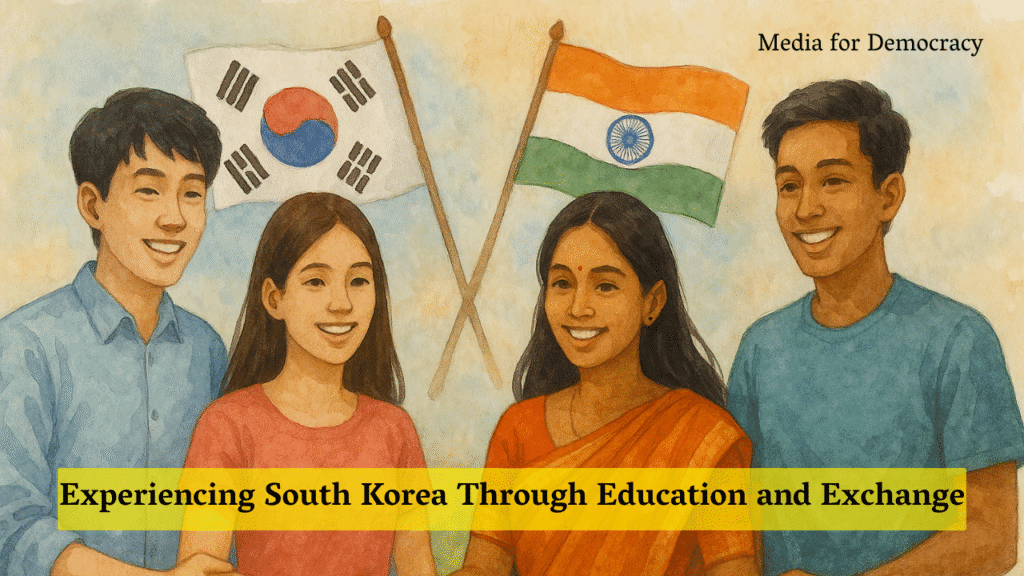
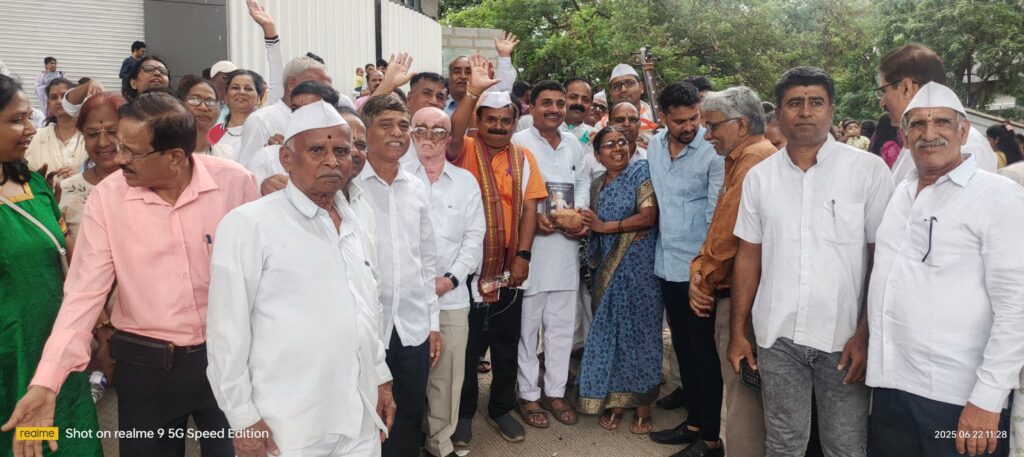

Thank you for having me on board and for writing about my experience so beautifully.